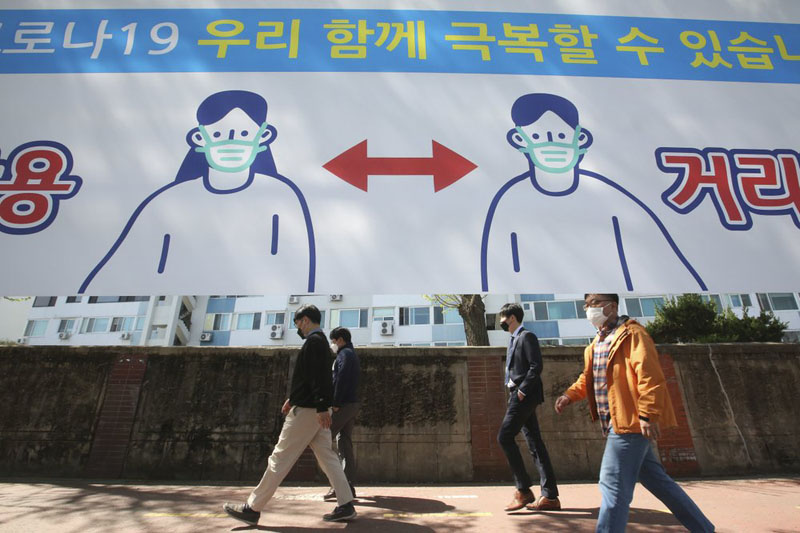

South Korea‘s daily COVID-19 cases hit a new record high on the back of the government’s eased anti-virus measures in November, the health authorities said Saturday.
According to the Korea Disease Control and Prevention Agency (KDCA), the country reported 5,352 more cases of COVID-19 as of midnight Friday compared to 24 hours ago, raising the total number of infections to 467,907.
The daily caseload was up from 4,944 in the previous day, surpassing the previous high of 5,265 tallied on Thursday.
The infected cases surged for the past month as the government alleviated quarantine measures in November, but the government announced plans to tighten anti-virus measures from next week amid the soaring cases.
The maximum number of private gatherings allowed in the Seoul metropolitan area and non-metropolitan regions will be lowered by four to six and eight respectively for four weeks from next Monday.
The vaccination verification program will be applied to more multiuse facilities from Monday with a one-week grace period.
The recent resurgence was attributable to cluster infections in the Seoul metropolitan area.
Of the new cases, 2,266 were Seoul residents. The number of the newly infected people living in Gyeonggi province and the western port city of Incheon was 1,671 and 282.
The virus spread also raged in the non-metropolitan region. The number of new infections in the non-capital areas was 1,108, or 20.8 percent of the total local transmission.
The number of the Omicron variant infections was nine, including four imported cases and five local transmissions.
Twenty-five cases were imported from overseas, lifting the combined figure to 15,842.
The number of infected people who were in a serious condition stood at 752, up 16 from the previous day.
Seventy more deaths were confirmed, leaving the death toll at 3,809. The total fatality rate was 0.81 percent.
The country has administered COVID-19 vaccines to 42,653,944 people, or 83.1 percent of the total population, and the number of the fully inoculated people was 41,284,671, or 80.4 percent of the population.
The number of those who received booster shots was 3,852,154 people, or 7.5 percent of the population.